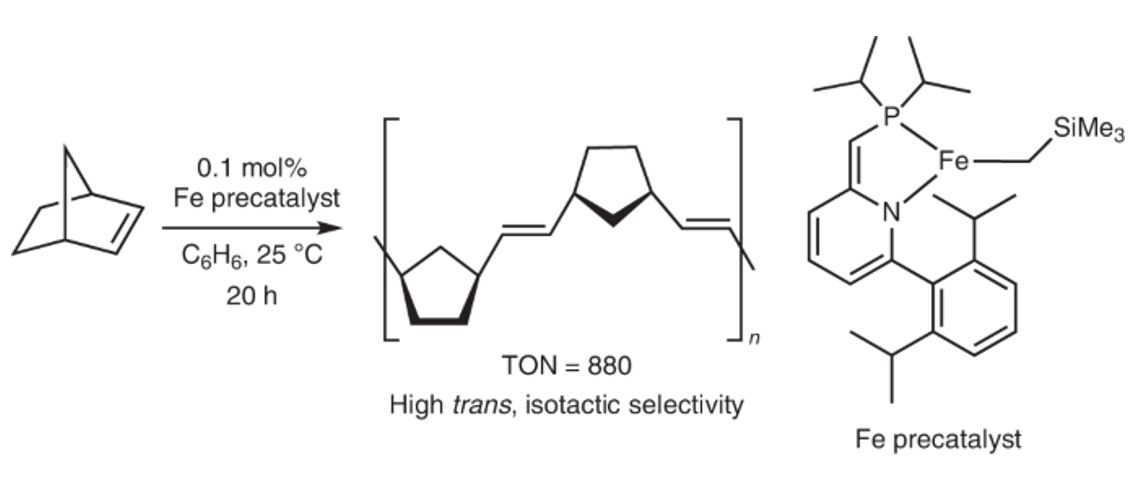6199
Overview
A novel iron-catalyzed Ring-Opening Metathesis Polymerization (ROMP) of olefins, which leads to several new catalytic reactions and enables the synthesis of new polymeric materials. This breakthrough replaces the costly and toxic Mo- and Ru-carbene catalysts that currently dominate olefin metathesis chemistry, using a catalyst based on earth-abundant iron.
Applications
- New polymeric materials (i.e. Polydicyclopentadiene, Polyoxanorbornene and Cyclooctene-based polymers).
- New engineering materials.
- Industrial-scale production of polynorbornene using iron-based catalysts

Iron-catalyzed ROMP of norbornene
Differentiation
- Economical
- Bio-compatible
- Forms high molecular weight polynorbornene
Development Status
The researchers have shown the ability to systematically perform the catalysis on a lab scale to produce Polynorbornene.
Patent Status:
European Patent Office Published: Publication Number: 4377007
Contact for more information

Dr. Vered Pardo Yissar
Senior Director of Business Development, Exact Sciences

